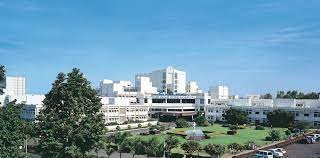MDS in Oral Surgery and Maxillofacial Surgery offers a promising future scope and a multitude of benefits for dental professionals. It equips graduates with specialized skills and knowledge to excel in clinical practice, research, teaching, and interdisciplinary collaboration.
Future Scope: MDS in Oral Surgery and Maxillofacial
Master of Dental Surgery (MDS) in Oral Surgery and Maxillofacial Surgery is a specialized postgraduate program that opens up a world of opportunities for dental professionals seeking advanced training and specialization in this field. It equips graduates with the knowledge and skills to diagnose, treat, and manage complex oral and maxillofacial conditions, making them invaluable contributors to the healthcare system. In this comprehensive guide, we'll explore the future scope and benefits of pursuing MDS in Oral Surgery and Maxillofacial Surgery.
Clinical Practice: Graduates of MDS in Oral Surgery and Maxillofacial Surgery have the option to establish their clinical practice. They can work in private dental clinics or hospitals, offering a wide range of oral and maxillofacial surgical services, including tooth extractions, dental implant placement, orthognathic surgery, and more. Clinical practice allows for autonomy and the potential for a lucrative career.
Academia and Teaching: Many MDS graduates choose to pursue careers in academia. They can become educators and professors in dental colleges and universities, imparting their knowledge and expertise to the next generation of dental professionals. Academic positions offer opportunities for research and publishing in reputable journals.
Hospital-Based Practice: Hospitals often employ oral and maxillofacial surgeons to manage complex cases that require multidisciplinary care. Graduates can work in government or private hospitals, addressing trauma cases, oral cancer surgeries, and emergency procedures.
Private Practice: Some oral and maxillofacial surgeons choose to establish private practices focused on specialized areas such as implantology, oral pathology, or facial cosmetics. Private practice allows for independence and the potential for financial success.
Maxillofacial Trauma: With the increasing incidence of accidents and injuries, there is a growing demand for oral and maxillofacial surgeons skilled in managing facial trauma cases. Graduates can work in trauma centers or establish practices specializing in trauma management.
Cleft and Craniofacial Surgery: MDS graduates can pursue careers in cleft and craniofacial surgery, working with pediatric patients born with facial deformities. These surgeons play a crucial role in reconstructing and improving the quality of life for these individuals.
TMJ Disorders: Temporomandibular joint (TMJ) disorders are common and often require surgical intervention. Oral and maxillofacial surgeons specializing in TMJ disorders can work in healthcare institutions or private practice to provide relief to patients suffering from these conditions.
Oral and Maxillofacial Oncology: Oral cancer is a significant health concern, and specialized surgeons in oral and maxillofacial oncology are needed to diagnose and treat these cases. Graduates can work in cancer centers, hospitals, or private practices dedicated to cancer management.
Orthognathic Surgery: Orthognathic surgery corrects skeletal and dental discrepancies in the jaws and face, improving both function and aesthetics. This specialized field offers a niche career path for MDS graduates.
International Opportunities: The skills and expertise acquired in MDS in Oral Surgery and Maxillofacial Surgery are highly transferable. Graduates can explore international job opportunities, especially in countries with a shortage of specialized oral and maxillofacial surgeons.
Research and Innovation: Graduates interested in research can contribute to the field's advancement by conducting studies, developing new surgical techniques, and publishing research findings. Research opportunities are available in academia, hospitals, and research institutions.
Benefits: MDS Oral Surgery & Maxillofacial Surgery
It equips graduates with the knowledge and skills to diagnose, treat, and manage complex oral and maxillofacial conditions, making them invaluable contributors to the healthcare system. In this comprehensive guide, we'll explore the future scope and benefits of pursuing MDS in Oral Surgery and Maxillofacial Surgery.
Expertise in Complex Cases: MDS graduates are equipped to handle complex oral and maxillofacial conditions that require surgical intervention. Their specialized training allows them to diagnose and manage challenging cases effectively.
High Demand: There is a consistent demand for oral and maxillofacial surgeons due to the prevalence of dental and maxillofacial conditions, trauma cases, and oral cancer. This demand ensures a stable and potentially lucrative career.
Holistic Patient Care: Oral and maxillofacial surgeons provide holistic patient care, addressing not only the physical aspects of conditions but also the emotional and psychological well-being of patients. This comprehensive approach is rewarding and fosters patient trust.
Versatility: Graduates can choose from a wide range of career paths, including clinical practice, teaching, research, and hospital-based practice. This versatility allows individuals to tailor their careers to their interests and goals.
Personal and Professional Fulfillment: The ability to alleviate pain, restore function, and enhance aesthetics in patients' lives brings immense personal and professional satisfaction. Oral and maxillofacial surgeons play a pivotal role in improving patients' quality of life.
Innovation and Advancement: Oral and maxillofacial surgery is a dynamic field with ongoing advancements in techniques, technology, and materials. Graduates have the opportunity to be at the forefront of these innovations, contributing to the field's progress.
Interdisciplinary Collaboration: Oral and maxillofacial surgeons often collaborate with other healthcare professionals, including orthodontists, oncologists, and plastic surgeons. This interdisciplinary approach enhances the learning experience and offers opportunities for teamwork.
Global Opportunities: The skills acquired in MDS are internationally recognized, allowing graduates to explore job opportunities worldwide. The field's universal relevance offers a global perspective and potential for international collaboration.
Research Contribution: Graduates interested in research can make significant contributions to the field by conducting studies, publishing findings, and participating in clinical trials. Research endeavors can lead to advancements in surgical techniques and patient care.
Personal Growth: Pursuing MDS in Oral Surgery and Maxillofacial Surgery challenges individuals to continuously improve their clinical skills, critical thinking, and problem-solving abilities. It fosters personal growth and development.
Job Security: Given the essential nature of oral and maxillofacial surgery in healthcare, graduates often enjoy job security and a stable career path.
 3 Years
3 Years
 Post Graduate
Post Graduate
 Dental
Dental
 Full Time
Full Time



 back
back

